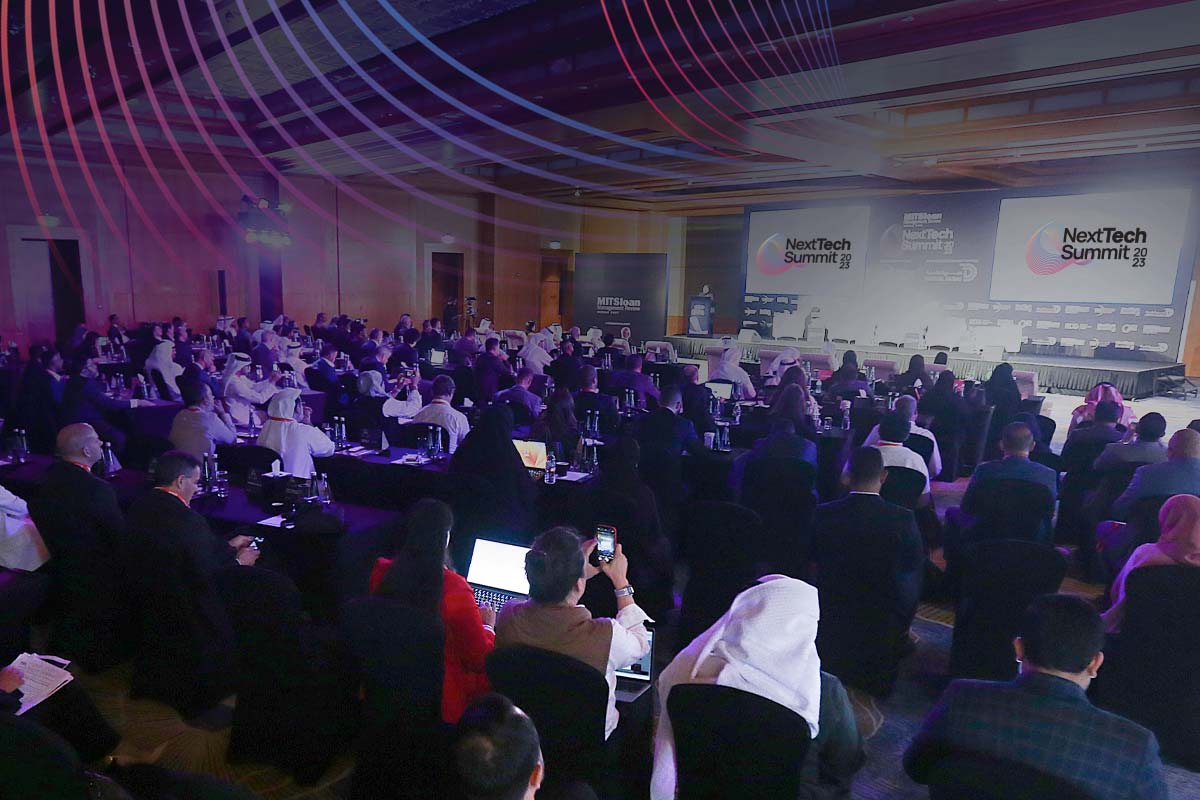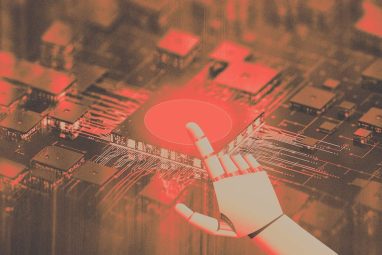Is the Middle East Ready to Leverage Emerging Advanced Technologies?
At the NextTech Summit, world-renowned experts and thought leaders delved into the latest advancements, a wide range of case studies and applications, and their implications for the future.
Topics
News
- Only 2% of Global Organizations Ready to Scale AI Securely, New Report Reveals
- Here’s How TCS and MIT SMR Aim to Redefine the Future of Enterprise AI
- How UAE Leaders Are Redefining AI’s Role Across Business and Society
- Ultra-High-Capacity Storage Is Becoming the Backbone of AI Ambitions in the GCC
- Private Sector to Outpace Governments in $20 Billion Earth Intelligence Market
- Saudi Arabia to Add 112MW to Data Centre Capacity in New Deal

[Source photo: NextTech Summit/MITSMR Middle East]
In this era of exponential technological advancement, AI has transformed various industries. As it rapidly integrated into various aspects of society, it has presented both positive and negative impacts, from its diverse applications that have drastically transformed sectors and daily lives to debates on ethical dilemmas and concerns such as job displacement, privacy, and safety.
At the NextTech Summit, world-renowned experts and thought leaders delved into the latest advancements, a wide range of case studies and applications, and their implications for the future.
While emerging technologies present opportunities to enhance our lives and resolve economic and social shortcomings, H.E. Younus Al Nasser, Chief Executive of Dubai Data & Statistics Establishment, Digital Dubai, says, “Technology, to us, is only a means to an end. Our end goal is how we best serve our citizens and residents.
Offering insights on leading in today’s digital economy, Al Nasser adds, “We need to make sure that we’re becoming more efficient in utilizing resources. Most importantly, [we] also [need to] cope with the transformation that is happening.”
There’s a crucial impact on research and development in driving the country’s economic growth. Dr. Ray O. Johnson, CEO of the Technology Innovation Institute, explored the UAE’s vision of pioneering research and innovation, calling it “essentially forming the innovation pathway from ideas to commercialization.”
For example, he points out Abu Dhabi’s Advanced Technology Research Council, established to help nurture the emirate’s ecosystem. “[We need to] recognize that knowledge and innovation would create that knowledge-based ecosystem.”
Besides strategic initiatives, he also stressed the importance of role models, such as Emirati astronaut Sultan Al Neyadi, in building a nation. “We need to continue to inspire the next generation of scientists and engineers, and they will help us achieve that economic development.”
Building a robust infrastructure is also crucial, as emphasized by Maryam Alhosani, HPC and Quantum Computing Specialist, G42. “The demand for AI infrastructure has outstripped the available supply.”
She adds, “The impact of AI is felt when it leaves the lab and enters our lives. While foundational models play a pivotal role in AI development, they are only as useful as their translation into our daily lives and the efficiencies they create.”
As third-party AI solutions become widely adopted by organizations worldwide, the complexity of ethical risks, in turn, increases. Elias Baltassis, Partner and VP, BCG, UAE, dives into the ethical challenges and need for responsible AI.
He lists the ethical issues with third-party AI solutions, including red tagging, jailbreaking, litigation, and data leakage. For example, he points out Pope Francis’s viral AI-generated deepfake image in a Balenciaga puffer jacket. The real solution, he says, is responsible AI. “[CEOs] need to show real, invisible support for responsible AI. It’s not just a topic in the corner. It’s something that can damage your company.”
He elaborates, “You must develop principles, policies, and tools. The principles need to be transferred into policies, and the policies need to be transferred into tools. Of course, you need to integrate this into the governments and processes of your company.”
Experts also shared insights on how blockchain and crypto payments are transforming traditional payment systems, the potential of Web3 for business organizations, and utilizing digital twin technologies, among others.
Jayesh Maganlal, Group Chief Information & Digital Officer – Roshn – Saudi Arabia, explained how his organization is leveraging digital twins from a design perspective. “Integrating with virtual reality and having that to test the designs and work through the design concept that we have, and give feedback to the customers.”
Talking about the nascent Web3 technology sector, Anas Bhurtun, CEO and Co-Founder of Arts DAO, noted, “Web3 represents a change in understanding the consumer; the idea is that you merge the consumer and the community member into something new. Effectively, in the past, we had customers who bought products. Now, Web3 represents a change where the customer effectively owns a stake in the product brand issuing something.”
The summit hosted by MIT Sloan Management Review Middle East on September 20 at The Ritz-Carlton, Dubai, had the Technology Innovation Institute as the presenting partner and Digital Dubai as the strategic government partner. G42 and Boston Consulting Group joined as the strategic sponsor and the gold sponsor, respectively.





